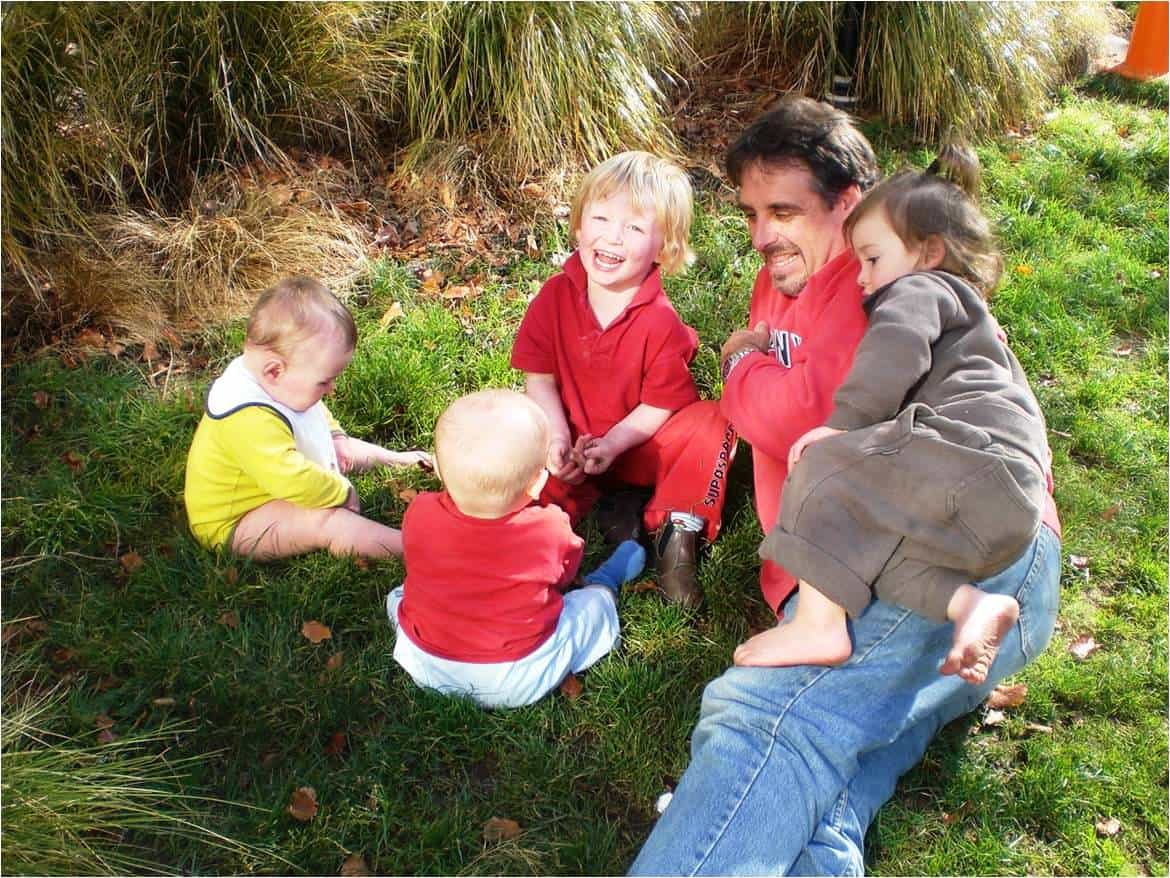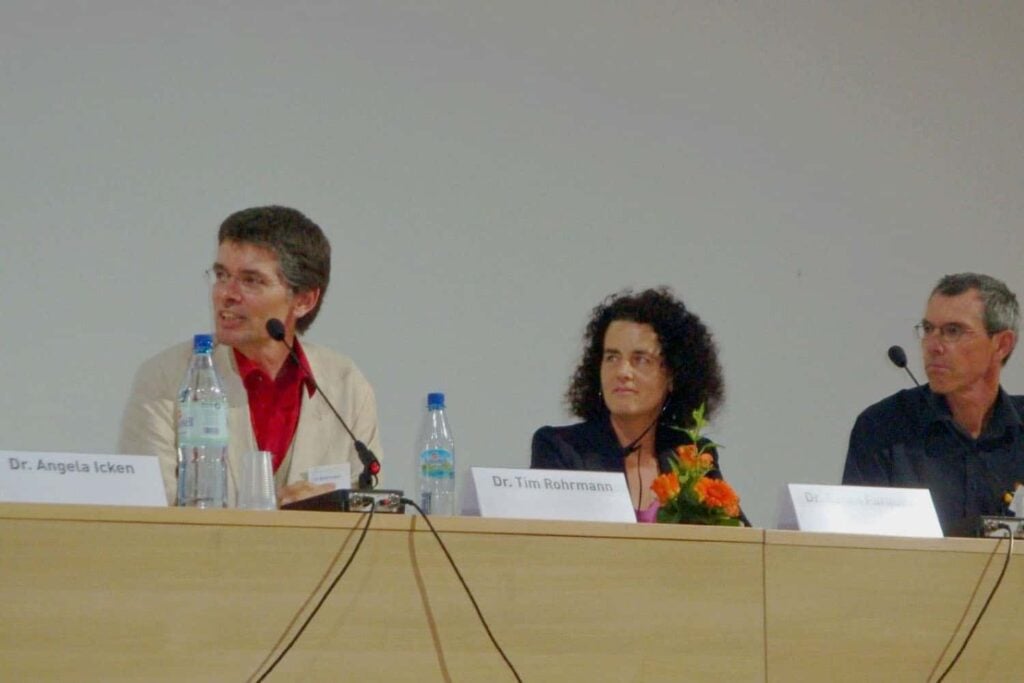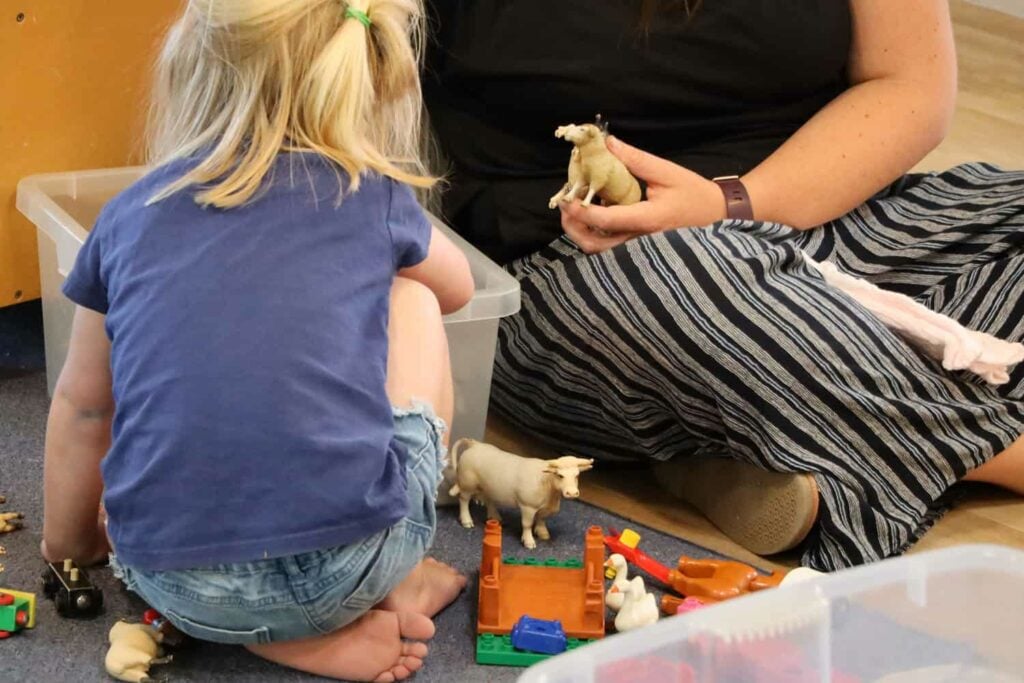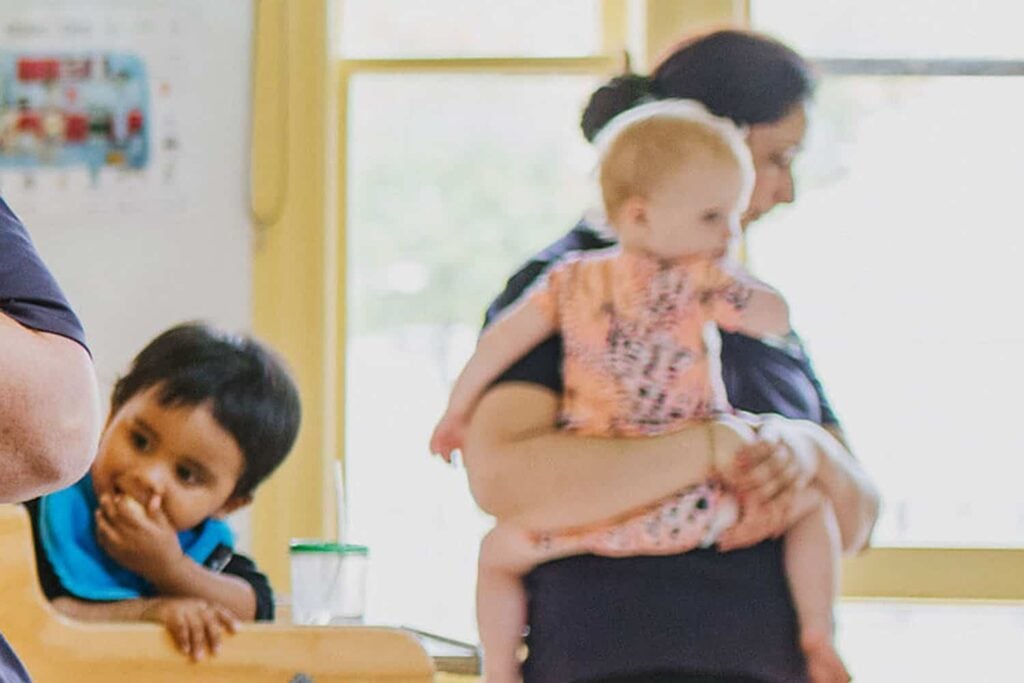Men Who Teach Young Children NZ.
ECE Symposium.
Wellington, 15 August 2016 *
Before giving some background to the main issues and challenges that lie ahead of us, I’d like to welcome our special guests Lynne and David Brody who have travelled from Israel.
David is our invited speaker tonight and it is a wonderful opportunity for us to hear from him personally about his research and gain an international perspective on Men who Teach Young Children.
I would also like to warmly welcome and thank MP for Manukau East Jenny Salesa for making time to be here tonight. Jenny has two daughters and is the Labour Party’s spokesperson for Skills and Training, and is the Associate Education, Employment and Health spokesperson.
I would also like to acknowledge and thank each of you for coming tonight and for your interest in diversity and gender in early childhood education.
Many of you are also doing valuable work in this area, be it by being a male who is working in ECE, or being an advocate and a support person, being a student or a researcher, a teacher educator, an employer, and/or a parent.
A reasonable expectation for anyone to hold about NZ is that NZ has a high degree of political support for diversity and gender balance in all areas of paid work. Our country is focused highly on issues of diversity, equality and fairness. New Zealand was also the first developed country in the world to give women the right to vote.
However, only 2% of the teaching staff in kindergartens, childcare centres and staff working as coordinators of home-based ECE are male.
While that is hard to believe today because it is possible for a male teacher to not be the only man teaching in an area such as Napier, Gisborne, or Southland – the size of the teaching workforce has grown exponentially over recent years as child enrolments have increased. There are more male teachers but there has not been a significant improvement in gender balance.
We have nearly almost recovered from the low of 1% that occurred in the immediate years following the Christchurch City Council Civic Centre child abuse trial. Before 1993, 2.3% of teaching staff were men – slightly higher than the 2.0% today.
Every day there are more than 200,000 children enrolled at ECE services across the country, with around 3,000 more boys than girls enrolled.
Many of these children will be cared for and taught by women only but how does this affect the way children see the roles of men and women and their own later life and career choices?
Should we be pleased to be back up to 2% of men in ECE – yes – but internationally NZ really has yet to get out of the starting gate.
Let me read to you a passage from Dr Body’s book on Men who Teach Young Children.
In a paper presented to an international early childhood conference in Portugal, “Anders Menks Eide (2012) compared the response of two societies, Norway and NZ, to the paedophilia hysteria that erupted in 1993, when in both countries only 2 per cent of the ECE workforce consisted of men. While in NZ the percentage continued to drop after this, in Norway it gradually increased over the years. The NZ Government took no action, whereas the Norwegians began to actively recruit men into the field, heightening public awareness of the importance that men work with young children, and appealing to men to consider ECEC as a career. This approach led to a steady increase of men in ECEC to its 2010 level of 10 per cent and an even more promising 14 per cent of all ECEC university students. This relatively high rate of men in the ECEC workforce can best be understood in the light of the government’s legislative and policy initiatives to prioritise gender equality”.
In 1997 while working as a lecturer at Massey University in the Dept of Educational Psychology I published research on the experiences of 20 male kindergarten and childcare teachers and the views and responses of their female work colleagues. From the day education reporter Al Morrison at Radio NZ asked me into the studio to do an interview on the Kim Hill morning show and the story went viral – the whole of NZ came to know about the decline in male representation, the causes, and the need to turn this around. But a common response when I talked to MPs was “what man would want to work with children anyway”?
Representing teachers, NZEI put out a ‘no touch’ policy guideline further ingraining fear and buying into the hysteria. This warned teachers not to have any physical contact with children. I argued that children need physical contact, and a key part of the teachers’ job was to care and provide affection and physical assistance as needed. Thankfully NZEI later changed the guideline, but I mention this because it is indicative of the kind of response that occurred as part of the hysteria and lack of positive affirmative action.
Equal Employment Opportunity (EEO) policy has not been applied to men in early childhood education and it has actually worked against male participation.
Positive discrimination or affirmative action to attract and retain men in the early education workforce has not been deemed necessary.
Why? In all cases where affirmative action is put in place the goal is to improve participation and outcomes for minority groups. In relation to early childhood education affirmative action has to date not been deemed to be necessary because men are not viewed as disadvantaged.
We know that there will be improved outcomes for both males and females by not limiting their career choices. We also know that occupational segregation, and in particular having such a large part of the female workforce concentrated in childcare work is not good for women’s economic advancement overall in society.
Given the state of things in New Zealand, will teaching young children ever become a fully gender inclusive occupation then? No.
But for all the little reasons in the world – children – it must.
My focus throughout my working life has been on improving the quality of ECE – Including why I became a teacher, why I went to university and studied and did a Master’s thesis and then a PhD about 25 years ago on quality in ECE with funding support from the Ministry of Education Research Division.
I was commissioned by the Ministry of Education to do one of the first BESs (Best Evidence Synthesis) in their series and I reported on the characteristics of quality teaching related to improved outcomes for children. Other areas of work have included looking at provision for gifted children, supporting parents as teachers, and creating breast-feeding friendly ECE services as this is linked to parental participation in paid work and children’s health.
Inclusive early childhood education environments are key to the provision of quality of care and effective teaching. I have no doubt that achieving a gender balance in the early childhood education workforce is important for children.
You’ll recall my statement earlier that the Massey University report came out in 1997 and the findings went viral. Despite a huge amount of media attention and public awareness of the issues faced by Men in ECE and of the declining rate of participation, nothing positive was done to address this.
Almost 10 years later with nothing done the male participation rate dipped to 0.96%.
So I asked four men at different stages of their ECE careers and in different roles to contribute their voices, their stories to a publication we titled “Men at Work: Sexism in Early Childhood Education”. At the time Jane Skinner, field producer for the TVNZ Sunday programme was interested and secured TVNZ’s support to make a documentary.
As part of the documentary the reporter went right up to the Minister of Education and asked the Minister at the time, Steve Mahary, “Does it bother you that there are so few men?”. The Minister replied “Yes it does worry me. The recruitment material at the moment is overwhelmingly dominated by women because that is who is in the sector. What we have to do is re-present this sector in education as something that is a good place for men to go and that is what we are beginning to do. We are producing material now that portrays men in the setting”. The reporter asked “when are these DVDs coming out”. “Pretty much in the next month or so” replied the Minister. The reporter’s voice-over said to the viewer ‘Well that was not quite right, the Minister said that six weeks ago and the Ministry says the DVD won’t be out until the end of the year and yes there will be a few blokes but the Ministry says this is not a male recruitment drive”.
The following year in 2007 the ChildForum Early Childhood National Network of which I am CEO organised a Summit on Men in Early Child Care and Teaching to provide an opportunity for male teachers across the country to meet and also discuss the issues that affect them.
I passed it over to the men to organise the next summit and to do what everyone agreed was a good idea and that was to form a Men in ECE support and lobby group. EC-Menz is a registered group and represents Men in the ECE sector. But when I see that EC-Menz has yet to be included on the Minister of Education-appointed advisory groups or consulted by the Ministry I get a sense that the mind-set will be a tough one to get through unless other politicians and the media question the stance of the Minister and Ministry.

In 2012 I was invited, expenses paid, to Berlin to meet and talk about Men in ECE with other experts from around the world and to learn about the progress that Germany has been making. What struck me was the wealth of overseas experience and learning that NZ could tap into and the tremendous possibilities for change if we did so. For example, with funding from the German Ministry of Family Affairs, Senior Citizens, Women and Youth a special initiative to increase male recruitment and participation in ECE in Hamburg involved setting up a central coordination centre, running a pilot programme, and engaging in research.
Activities included:
- Fielding calls and providing support to those interested in training to be an early childhood educator or employing a male educator.
- Providing an annual conference with lectures and workshops for men and women on Men in ECE.
- Initiating and managing work groups to develop concepts, set goals, and establish networks.
- Development of professional development courses to meet the specific needs of the 58 centres in the pilot programme.
- Running a publicity campaign.
In just under two years, the project within the Hamburg area had:
- More than 18,000 visitors to its Facebook homepage,
- 20,000 viewers of its YouTube channel,
- More than 100 press/newspaper articles about the project,
- Increased to 13% the proportion of men in the centres in the project, and
- Seen the number of men enrolled in training increase to 18%.
Men who teach young children NZ
Over one week in August 2012 we ran a nation-wide survey to gauge the feeling of those involved in ECE and teacher education about the involvement of men in ECE teaching and received more than 800 responses.
The aim of the survey was to determine whether those in the sector wanted to see more men in the workplace and what benefits or disadvantages it could bring. The results show that the majority would like to see more men in ECE.
Not only was it believed that more men in the sector would bring a range of benefits for children, it could also lift the overall quality of teaching by introducing gender diversity, improve staff dynamics and encourage fathers to become more involved with their child’s education.
A more diverse workforce, with men represented as well as women, is seen as being necessary to expand the quality of early childhood education for children and bring different viewpoints and ways of working to the ECE profession and the sector.
Here is a summary of the results showing what difference respondents thought having men on the teaching staff would make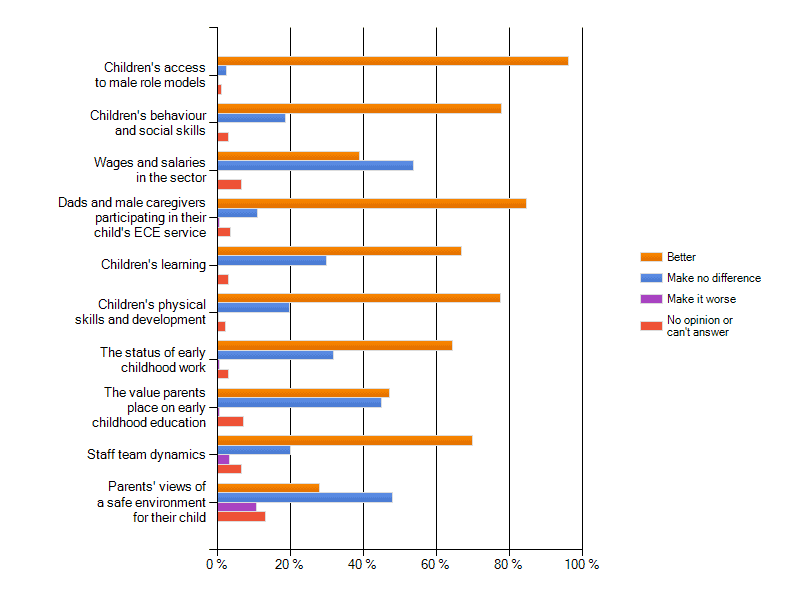
The results also reveal some worries expressed by a minority of respondents about how increasing the number of male teachers may impact on job security with some expressing concern that there may be fewer employment opportunities for women if (more) men were let into the sector.
The majority of respondents recommended the Government set policy or intervene in some way to increase male representation.
In 2013 I sent a copy of the survey results report to the Minister of Education along with a letter explaining the issue, letting her know of local initiatives such as the scholarships that ChildForum had introduced to invite men into ECE and saying that I looked forward to hearing what actions and strategies she would be putting in place as Minister of Education. Her response was:
Tena Koe
Thank you for your letter about targeting more male teachers in the early childhood workforce. I am pleased to see that the ECE sector is actively finding ways to encourage men to find opportunities in the sector and engage in teaching.
However, Government’s main goal is on the Better public service goal that in 2016 98% of children starting school will have participated in ECE.
It is now 2016 so why did the Minister decline an invitation to attend tonight’s symposium? Actually the invitation was declined by an office temp, not even a permanent member of staff, on the Minister’s behalf.
By not making a serious effort to get more men as teachers and utilising the research and expertise now available the Government, the Minister of Education and the Education Ministry is showing that the focus on increasing the child participation rate is not about giving children access to ‘quality’ care and education.
Owing to the benefits for children through enhancing the quality of their early childhood experience I have not given up hope and have kept talking about, researching and advocating the importance of gender balance.
Early childhood education services should be inclusive environments:
- Where children see and will gain an early understanding that teaching is gender appropriate for men
- Where roles are no longer stereotyped
- Where boys and girls have a choice of both female and male teachers to relate to, receive cuddles from, talk with and learn from
- Where the contributions that men can bring to teaching are as valued as women’s contributions are
- Where at no early childhood service will a father have cause to stand on the door step and feel uncomfortable about stepping into female territory.
Political support is needed. We need the support of MPs and their voices in Parliament to help champion change.
We also have much to learn from other country experiences and from research.
Dr David Brody will be sharing with us tonight an international perspective on men who teach young children. Gaining an understanding of men’s experiences and cultural influences can help to inform new strategies to attract and recruit men into ECE.
* Opening Speech by Dr Sarah Alexander
Also, did you know …
The 2016 OECD report on “Low-Performing Students: Why They Fall Behind and How To Help Them Succeed” calls for education systems to tackle gender stereotypes.
Even if only for the reason of raising student later academic achievement levels, diversity must be placed at the forefront of the early childhood curriculum. Teachers of both genders must be available for children.


